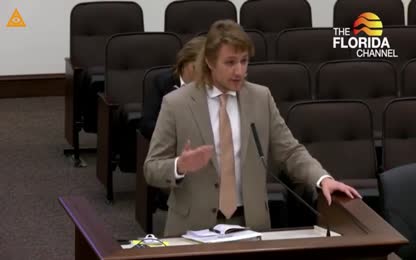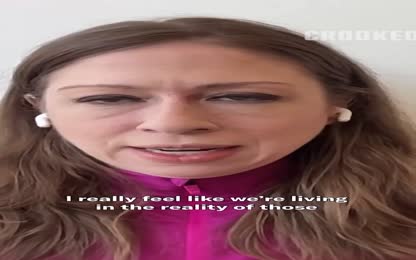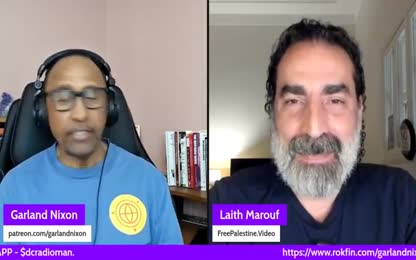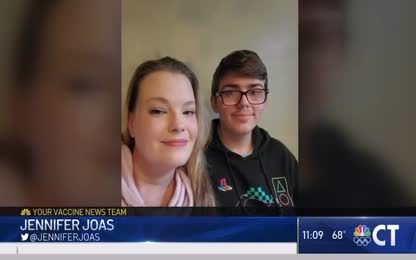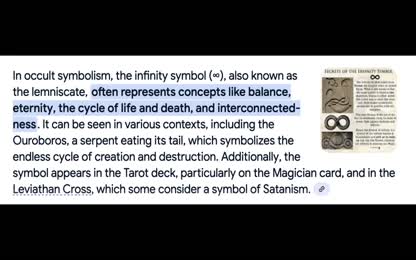Advertisement
Dan Lasater - Cocaine Distributor Close Clinton Friend - Destroyed in Hearings
Watch Dan Lasater get completely destroyed by Michael Chertoff. Lasater was a close personal friend of Bill Clinton in Arkansas in the 1980's and was instrumental in getting Clinton back into the Governor's seat of power in 1983, after he had lost it in 1981... reportedly from too much partying. Little did anyone at the time know though... that the real PARTY was about to begin! Think about this... Lasater said he never sold cocaine, and he was never convicted of Trafficking it... just Distribution of it, or "giving it away". There are stories of wild parties at Lasater's mansion, with ashtrays in all the rooms, just filled with cocaine... This is what he was convicted of... So there's a couple of interesting things to think about here... First off, he's RICH, so sure, he can afford to "give away" cocaine... But the quantities reportedly being given away are quite HUGE, which begs the question... WHERE did he get such quantities, being in the middle of Arkansas, of all places??? Mena? Barry Seal? Roger Clinton, Bill's brother? Roger Clinton, just happened to have worked for Lasater(just a coincidence huh) and he too was busted for Cocaine, in yet another coincidence. Lasater paid a Cocaine debt for Roger Clinton once, when Roger said his stash was stolen from his car, and the Dealers were threatening him and his brother Bill Clinton.
- Category: Cover-Up / Damage Control,Crime / Criminals,Clinton Crime Family,Corrupt / Corruption
- Duration: 07:53
- Date: 2018-12-02 22:53:38
- Tags: mena, barry seals, iran contra, bill clinton, cocaine, smuggling
1 Comments
Video Transcript:
So, past 10 years I have often been the subject of an act of misleading news articles. Outrageous and totally false stories about me have appeared in both the local and national newspapers and magazines. A good example of that was in this morning's Wall Street Journal where I was called a convicted drug dealer by Mr. Simpson. And I challenged Mr. Simpson and Wall Street Journal with this time to prove any evidence that they have on that because that's not been the case. Political opponents of Governor and now President Clinton have sought to use this false information for political advantage. In the process my reputation has been smeared, my business centers have been damaged. It has never been alleged that I committed any fraudulent act or lied in a course of any investigation. Did I understand you to deny a moment ago that you were convicted for conspiracy to distribute narcotics? No. I said I was not a convicted drug dealer. Well, I was convicted of social distribution of cocaine. Mr. Lasseter, there is no crime of social distribution of cocaine. You were convicted of conspiracy to possess and distribute cocaine a federal felony, isn't that correct? That is correct. But I did not sell drugs. Mr. Lasseter, you were indicted for conspiracy to possess with intended distribute cocaine. Is that correct? That is correct. But again, I repeat, that was on a social basis. We'll get to that in a second. But first let's be 100% clear about the crime you pled guilty to. Okay? And when you pled guilty, you got up in front of a federal judge. Yes, sir. You raised your hand. Yes, sir. And you admitted your guilt to the crime to which you were charged. Correct. Correct. And the crime is possession with intended distribute cocaine, right? That is correct. And there is no separate crime for social distribution of cocaine. Is there? I don't know for a second, for a separate crime or not, but I think there is a separate moral issue. So you think it's morally better to give cocaine away than to sell cocaine? That is the distinction you are drawing, right? I guess that is the dictation of the crime. Because when you give it away, you are doing a favor to the people you give it to. Is that you are thinking about it? I just, I think there is a difference between selling cocaine and using it in a social basis. We are not talking about using it. We are talking about giving it to other people to use. I just think we need, since you are coming up here and you have made an issue in your opening statement about questions of your character and your, and this whole issue of what you are convicted for, let's get straight. In your mind, you see a difference between selling drugs to other people and giving drugs to other people. Yes, I do. And you think it is better to be giving it than selling it? Yes, I do. And you used to give drugs to your employees, right? Yes, I kind of like a bonus, right? No, sir. It was kind of compensation? No, sir. Did you do it in order to control them or to have leverage over them? No, sir. Mr. Drake, is it for you or an employee of Mr. Lasseter? Yes, it was. You got cocaine from Mr. Lasseter? Yes, it is. Was it your view that Mr. Lasseter used cocaine as a tool to manipulate people? I think that at a time, I thought that, yes. And in fact, at a time, you told that to a police investigator, right? I could have. You remember an investigator named Delorda, Dr. Yes, he was an investigator with the Arkansas Law Enforcement Authorities. Yes. And you talked to him about Mr. Lasseter and Mr. Lasseter's cocaine activities, right? Yes. You told Mr. Delorda that in your view, Mr. Lasseter used cocaine as a tool to manipulate his peers. If that's my statement, then I stand by it. And that's what you said in 1986, right? I may have. You also went on to say in this statement that Mr. Lasseter surrounded himself with police officers in order to make himself look like he's a good citizen. You remember saying in that? I don't remember saying it, no. Are you? It's the next very next page. Are you prepared to deny that you said that in substance to the investigating officer in 1986? I'm not prepared to deny it, no. Now, I want to ask you, Mr. Lasseter, he gave drugs to your employees, right? Right. And you gave drugs to people you were entertaining, right? Right. Even underage people you were entertaining, right? Right. So when we, I just want to make sure we have kind of your moral compass out here that giving drugs away to your employees and to people you're entertaining, even if they're underage, that's better than selling. There's a, you see a distinction there. That's your position before this committee. I think there's a difference, yes. You know, let me tell you something. I've seen, I've seen, I put a lot of witnesses on over the years who've done bad things and I have a firm believer that people do put things behind them and they achieve redemption. But I also know that the first step to that is honesty and accountability for something someone has done wrong. And I have to, I am astonished to hear you say that you see, you actually view your acts as having given drugs away to these people as somehow morally distinct from selling it. Now you also say in your statement, Mr. Lasseter, that you've, it's never been alleged you ever committed a fraudulent act or lied in the course of any investigation. That's in your opening statement, right? It is. You remember when Mr. Locke, your partner in Collins Locke and Lasseter had a bankruptcy case in federal court in Arkansas? Yes, I do. That was in the early 1980s. Yes. There was a bankruptcy judge named Nixon. Yes, I remember that. You was a federal judge. Yes. You testified in that case? Yes, I did. Again, you raised your hand in sworn oath. Yes. And you remember what the judge said about your testimony? I do. What did he say about it? He said it was false. And in fact, he said that you were involved with Locke and a conspiracy to hide assets from creditors, right? That's what he said, but that was inaccurate. So when you say here, it has never been alleged that I committed any fraudulent act or lied in the course of any investigation. You don't consider a finding by a federal judge that you lied under oath to be an allegation that you committed a fraudulent act or lied. No, that is an allegation. Not so incorrect. So your testimony, so your prepared sworn statement before this committee, we've already established is false with respect to this statement. It's false in reference to that statement, but I disagree with Judge Nixon. But you see, and let me say something, Mr. Asker, we didn't catch you on a wears with this question here. You prepared this statement. You walked in here to this committee room with this statement to get in the face of this committee and say that we know that it has never been alleged that I committed any fraudulent act or lied. And you having put that on the table, you now admit to us that you well and in truth know that there was a federal judge who accused you and made a finding that you lied under oath, correct? Did I have a second? All right, let's keep going. Councillor, I didn't have that in mind when I prepared that statement. I've forgotten about it, and I apologize. You've forgotten about the fact that a federal judge made a statement of finding an open court that you had lied under oath and that you had been involved in a conspiracy to defraud creditors of your partner Locke. Right.









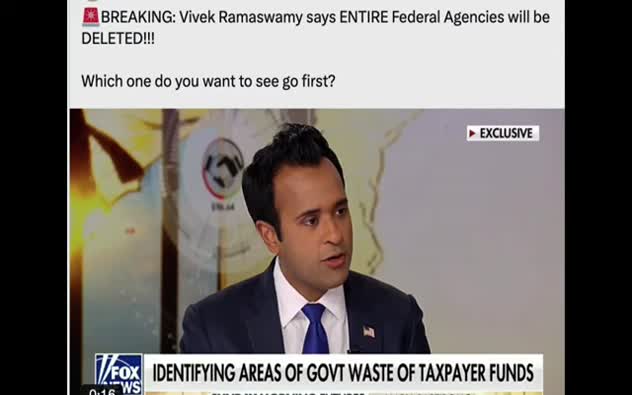
 Donate
Donate